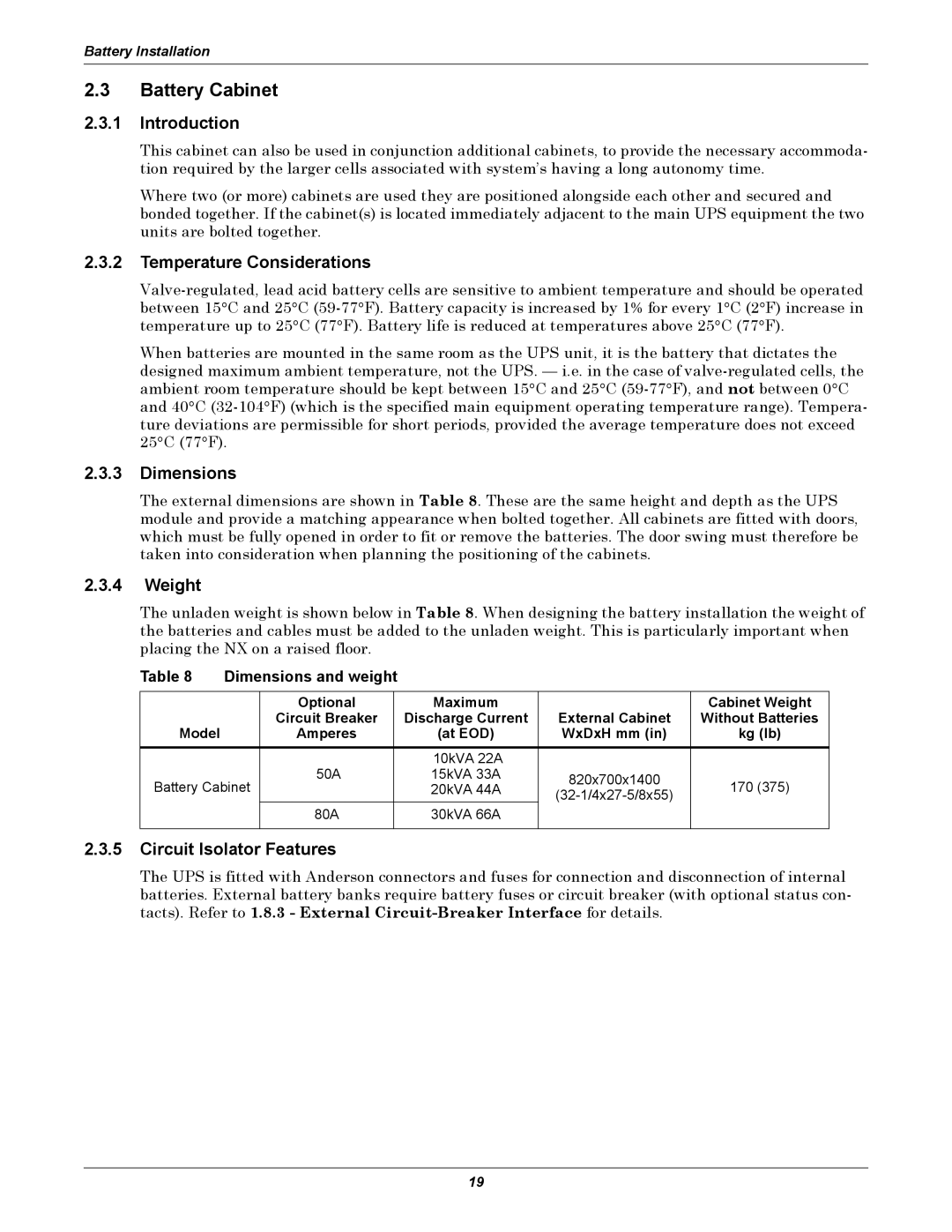
Battery Installation
2.3Battery Cabinet
2.3.1Introduction
This cabinet can also be used in conjunction additional cabinets, to provide the necessary accommoda- tion required by the larger cells associated with system’s having a long autonomy time.
Where two (or more) cabinets are used they are positioned alongside each other and secured and bonded together. If the cabinet(s) is located immediately adjacent to the main UPS equipment the two units are bolted together.
2.3.2Temperature Considerations
When batteries are mounted in the same room as the UPS unit, it is the battery that dictates the designed maximum ambient temperature, not the UPS. — i.e. in the case of
2.3.3Dimensions
The external dimensions are shown in Table 8. These are the same height and depth as the UPS module and provide a matching appearance when bolted together. All cabinets are fitted with doors, which must be fully opened in order to fit or remove the batteries. The door swing must therefore be taken into consideration when planning the positioning of the cabinets.
2.3.4Weight
The unladen weight is shown below in Table 8. When designing the battery installation the weight of the batteries and cables must be added to the unladen weight. This is particularly important when placing the NX on a raised floor.
Table 8 | Dimensions and weight |
|
|
| ||
|
| Optional |
| Maximum |
| Cabinet Weight |
|
| Circuit Breaker |
| Discharge Current | External Cabinet | Without Batteries |
Model |
| Amperes |
| (at EOD) | WxDxH mm (in) | kg (lb) |
|
|
|
| 10kVA 22A |
|
|
Battery Cabinet | 50A |
| 15kVA 33A | 820x700x1400 | 170 (375) | |
|
| 20kVA 44A | ||||
|
| |||||
|
| 80A |
| 30kVA 66A |
|
|
|
|
|
|
|
|
|
2.3.5Circuit Isolator Features
The UPS is fitted with Anderson connectors and fuses for connection and disconnection of internal batteries. External battery banks require battery fuses or circuit breaker (with optional status con- tacts). Refer to 1.8.3 - External
19
